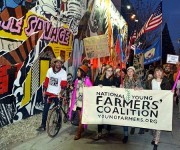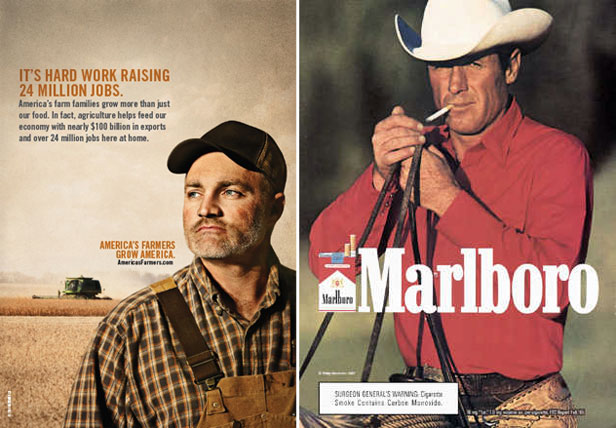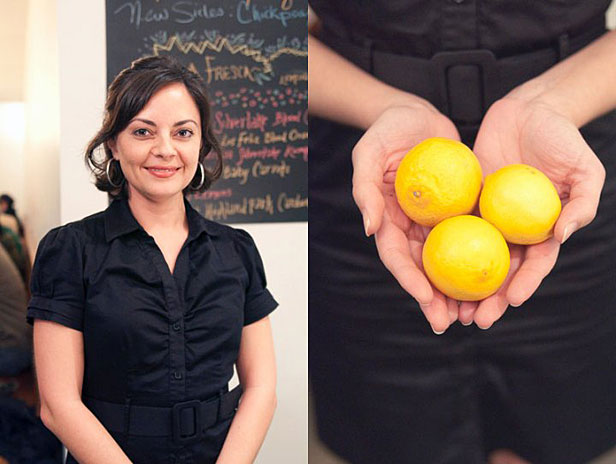Photo: Eddie CrimminsIt’s been a long time since farmers congregated in downtown Manhattan — around 350 years, to be exact. The folks who populate Wall Street and rural America don’t cross paths much these days. It’s easy to forget that Wall Street used to be rural America; in 1644, the area contained so many cows that the Dutch colonists had to erect a cattle guard to keep them from straying. Livestock farmers literally established the boundaries of Wall Street.
Today, the bronze bull — that icon of the OWS movement — is the lone farm animal you’ll find in the financial district. And the barricades are back, but only to keep Zuccotti Park’s mic checkers in check. That surprisingly fertile concrete plaza has yielded a bumper crop of grassroots activists, to the discomfort of (most of) the 1% and the shills who bill them. But the voices of farmers — a.k.a. the 1% that grows the food that 100% of us eat — have been largely missing from this movement to reclaim our democracy, despite the fact that food has become a commodity that enriches a few at the expense of the many.
That al... Read more




